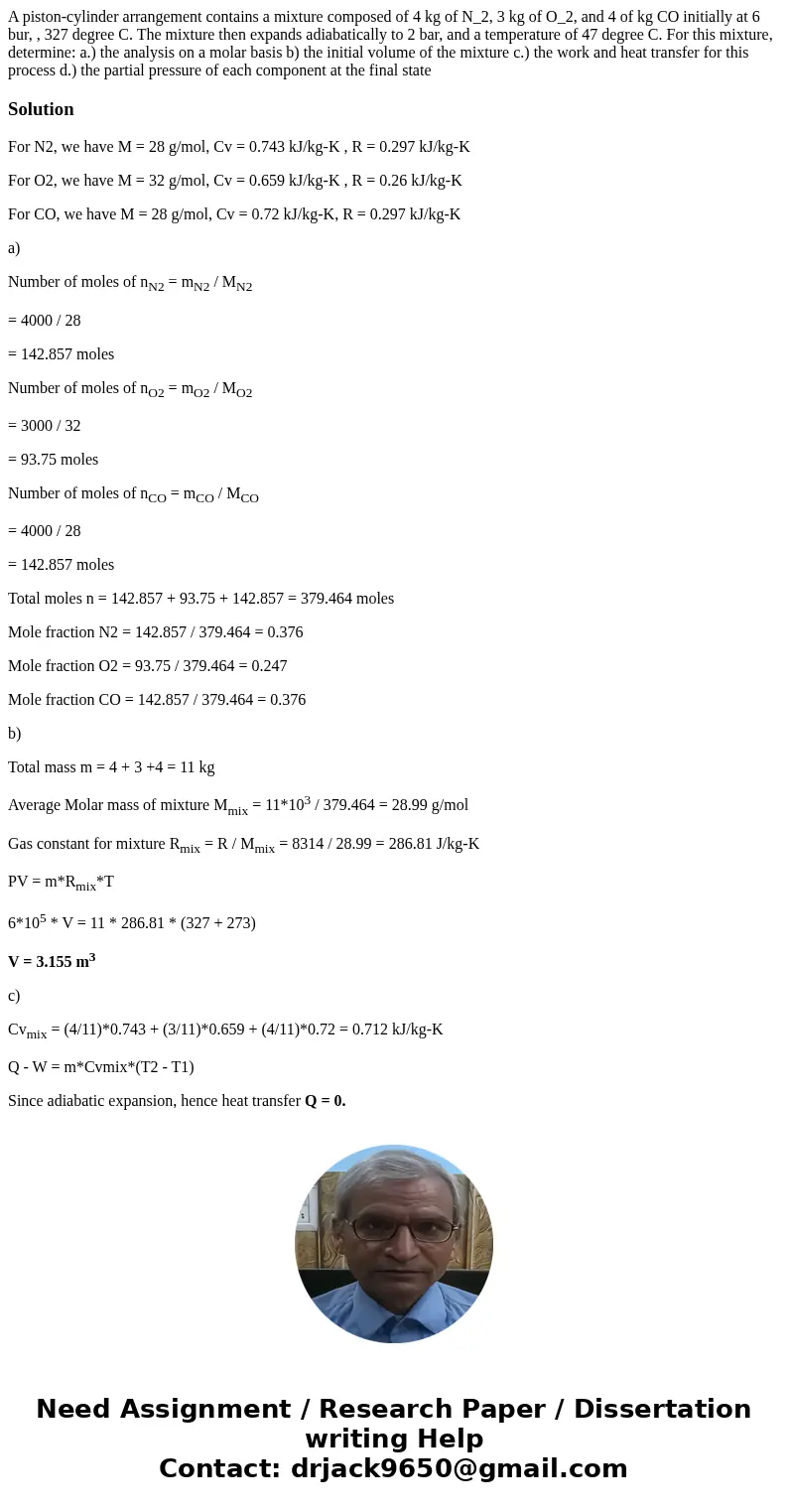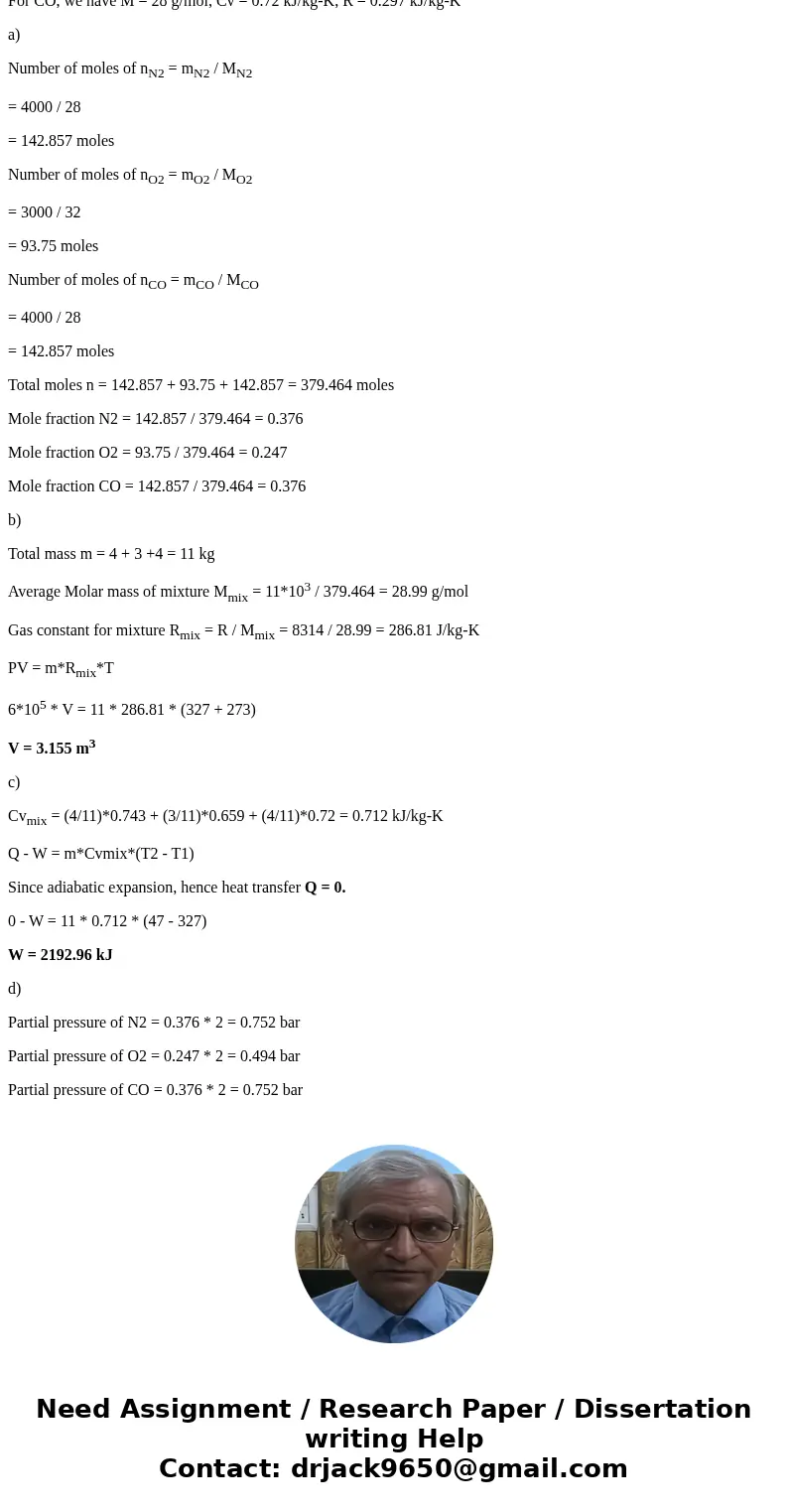A pistoncylinder arrangement contains a mixture composed of
Solution
For N2, we have M = 28 g/mol, Cv = 0.743 kJ/kg-K , R = 0.297 kJ/kg-K
For O2, we have M = 32 g/mol, Cv = 0.659 kJ/kg-K , R = 0.26 kJ/kg-K
For CO, we have M = 28 g/mol, Cv = 0.72 kJ/kg-K, R = 0.297 kJ/kg-K
a)
Number of moles of nN2 = mN2 / MN2
= 4000 / 28
= 142.857 moles
Number of moles of nO2 = mO2 / MO2
= 3000 / 32
= 93.75 moles
Number of moles of nCO = mCO / MCO
= 4000 / 28
= 142.857 moles
Total moles n = 142.857 + 93.75 + 142.857 = 379.464 moles
Mole fraction N2 = 142.857 / 379.464 = 0.376
Mole fraction O2 = 93.75 / 379.464 = 0.247
Mole fraction CO = 142.857 / 379.464 = 0.376
b)
Total mass m = 4 + 3 +4 = 11 kg
Average Molar mass of mixture Mmix = 11*103 / 379.464 = 28.99 g/mol
Gas constant for mixture Rmix = R / Mmix = 8314 / 28.99 = 286.81 J/kg-K
PV = m*Rmix*T
6*105 * V = 11 * 286.81 * (327 + 273)
V = 3.155 m3
c)
Cvmix = (4/11)*0.743 + (3/11)*0.659 + (4/11)*0.72 = 0.712 kJ/kg-K
Q - W = m*Cvmix*(T2 - T1)
Since adiabatic expansion, hence heat transfer Q = 0.
0 - W = 11 * 0.712 * (47 - 327)
W = 2192.96 kJ
d)
Partial pressure of N2 = 0.376 * 2 = 0.752 bar
Partial pressure of O2 = 0.247 * 2 = 0.494 bar
Partial pressure of CO = 0.376 * 2 = 0.752 bar


 Homework Sourse
Homework Sourse